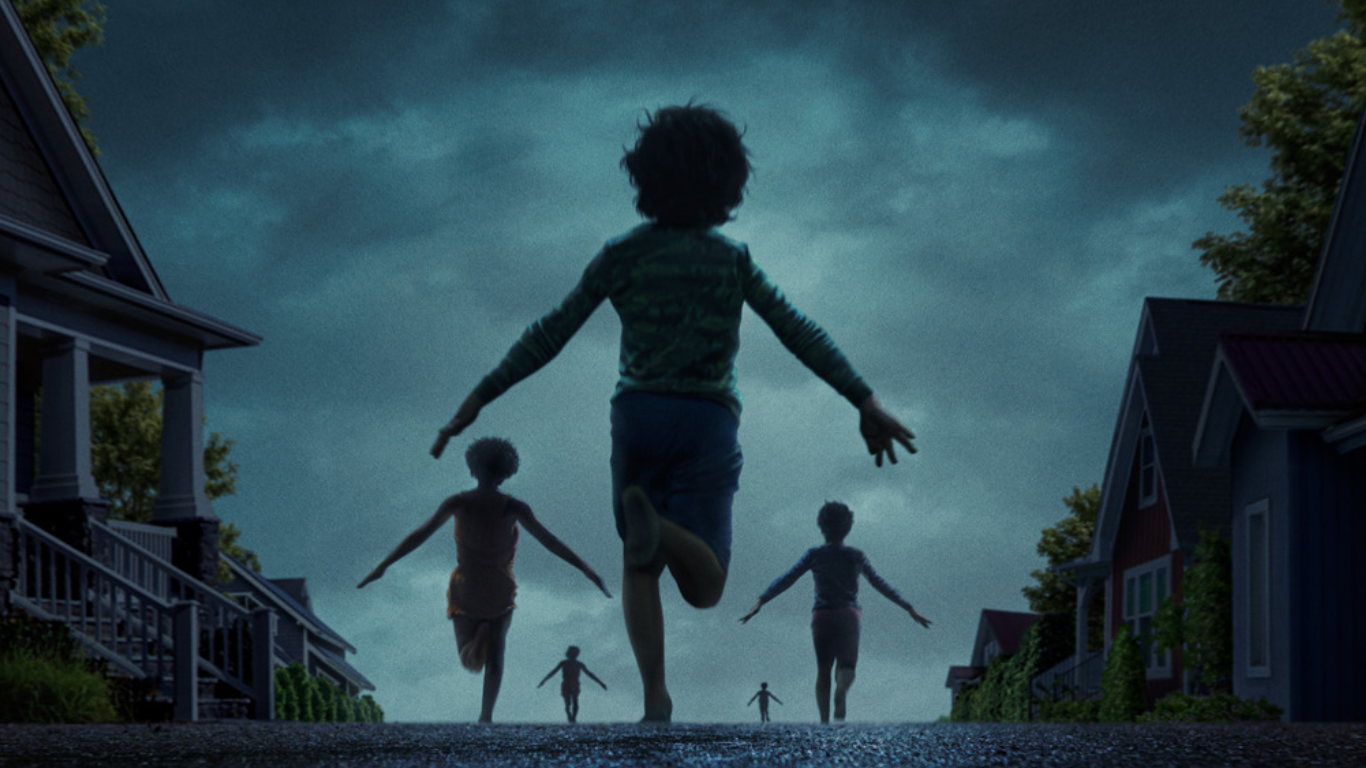Warning: mild spoilers ahead
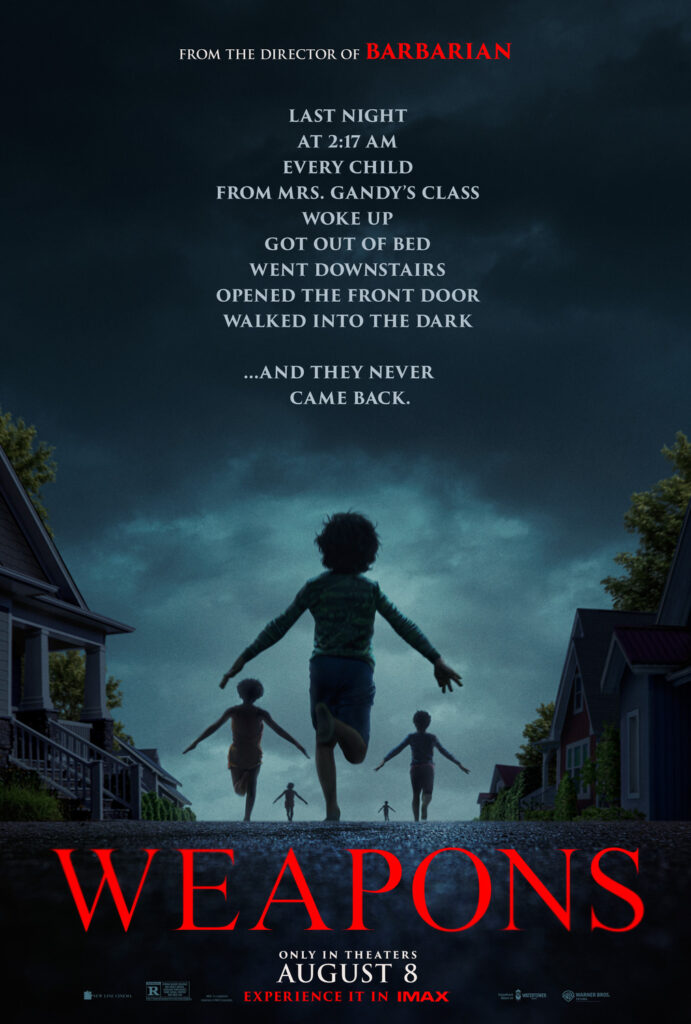
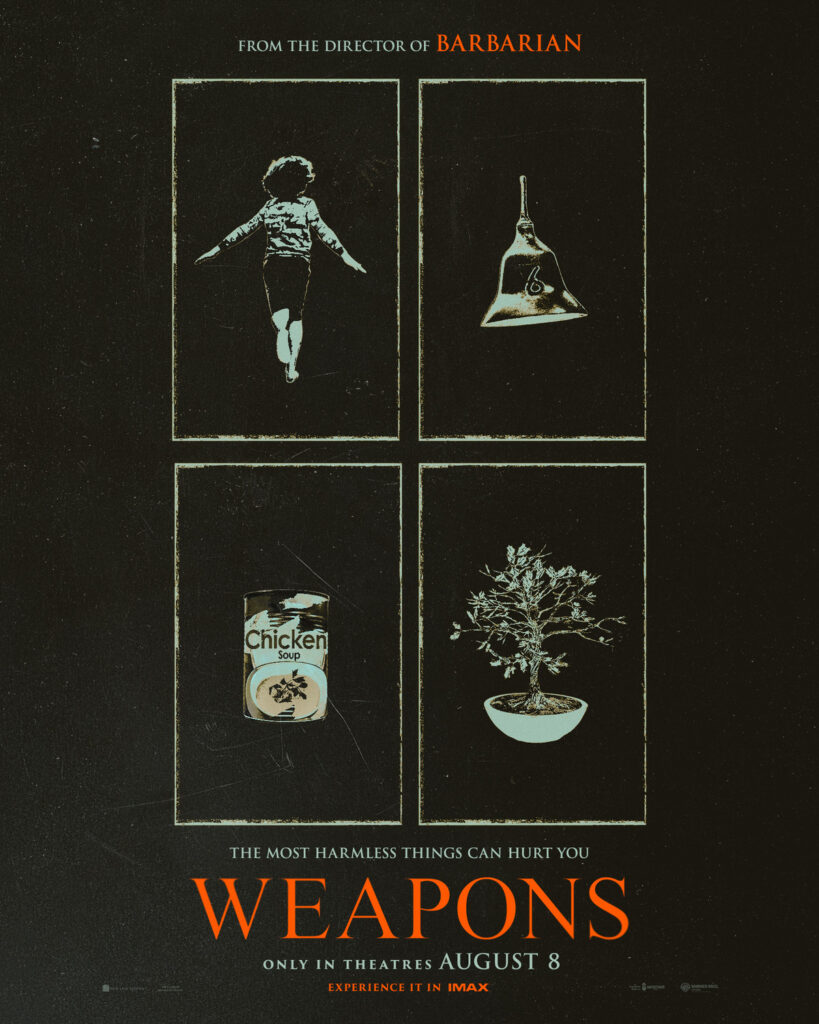
Weapons (2025)
Directed by Zach Gregger
Weapons have quickly divided audiences. Some viewers enjoyed the film, while others initially felt engaged but ultimately disappointed by the ending. This split reaction reveals a larger issue: you can’t mix comedy into horror without the right context.
Good trailer, a let-down horror.
Weapons arrived with plenty of buzz, but that excitement faded fast. Its rating has since dropped to 3.3 on Google. A sign that once horror fans saw it for themselves, many felt it didn’t live up to the trailer’s promises.
At first, Weapons seemed promising. The trailer ticked all the boxes of uncanny horror: missing children, supernatural mysteries, unsettling imagery and even a great psychological horror-coded poster. The marketing campaign and early reviews gave the impression of a strong, atmospheric psychological horror film. For conventional horror fans, though, the film turned out to be less about fear, and in this article, we’ll dive into why.
Weapons (2025) is the most unserious psychological horror ever.
The biggest disappointment came in the final act. Despite setting up a serious and suspenseful tone, the ending suddenly turned comedic. penguinz0, a popular YouTuber, summed it up in a video called “I Disagree with the Hype”.
“It’s a horror movie, sure, but I would actually argue it’s more of a comedy… and I don’t think people are aware of that… it was fine. Like, I don’t hate that, but it’s not really a horror when it’s not taking itself seriously.”
This shift undermined the horror atmosphere and confused audiences about what the film was trying to be.


The worst part is that these scenes weren’t even intended to be funny. No script or dialogue was hinting at humour. They came across as so awkwardly executed that audiences laughed at their unintended goofiness.
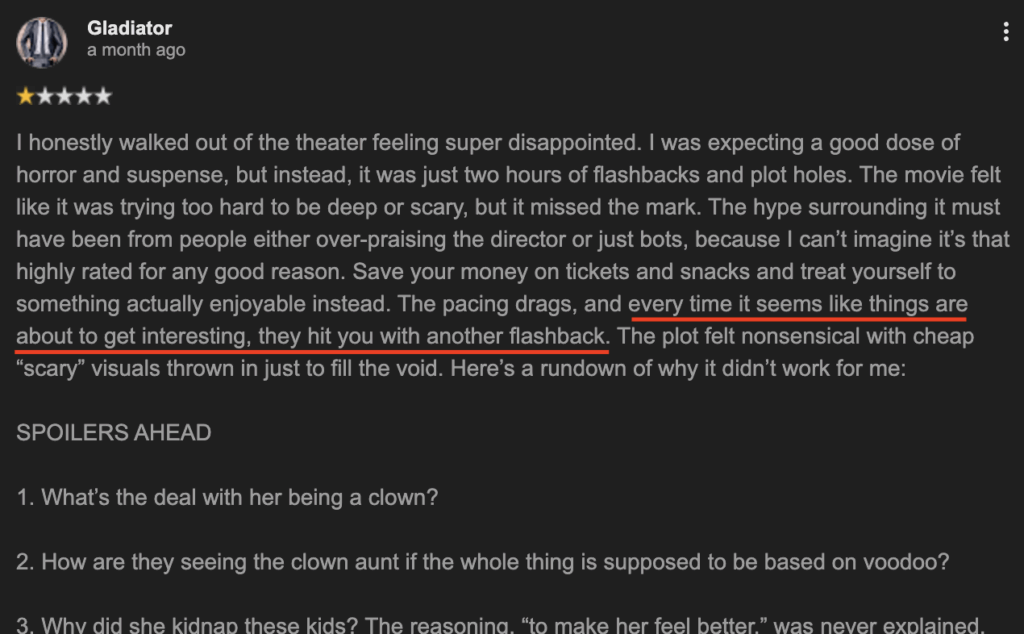
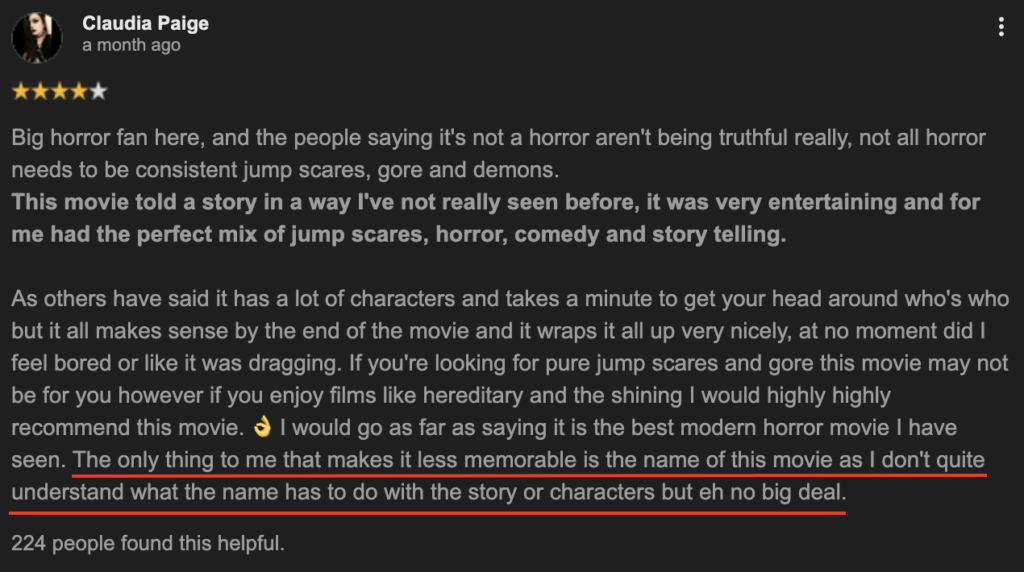
While some viewers enjoyed Weapons, one complaint was universal: too much went unexplained. The unanswered questions for horror fans who love rich world-building are infuriating because no one likes cheap endings with no context.
Empty fillers, fillers, more fillers and more ‘whys’
Weapons had a creative approach to storytelling. But it became weighed down with other fillers such as jumps between characters’ perspectives, which by the end of the movie, you believed you had wasted your time getting the unnecessary context (especially relationships between characters, like we really don’t want to know about your private lives that detailed..). Although I enjoyed the film’s creative storytelling, it ultimately interfered with presenting true uncanny horror. The same effect could have been achieved more effectively by incorporating horror and grotesque elements into each character’s perspective, which would have been a more creative approach and given us many goosebumps throughout the buildup. This lack of focus made the eventual arrival of the monster feel less impactful than it should have.
After all that, the horror didn’t begin until an hour into the film, when the first ‘monster’ finally appeared and attacked. Wouldn’t it have been far more terrifying if that same creature had been present from the beginning, lingering in the background, doing nothing, but unsettling us with its presence? Instead of tightening the suspense, the film’s structure gave an amateurish impression.
Take Aways
Ultimately, Weapons is not a horror film sprinkled with comedy — it’s a mystery comedy film sprinkled with horror. That distinction matters. The tonal clash is underwhelming for viewers who expect genuine suspense and supernatural fear. While Weapons may work for mystery lovers or those open to a horror-comedy hybrid, it is ultimately not for everyone.
Stronger examples of truly disturbing psychological horror include Us (2019), Get Out (2017), and even The Shining (1980), which Weapons itself referenced multiple times.
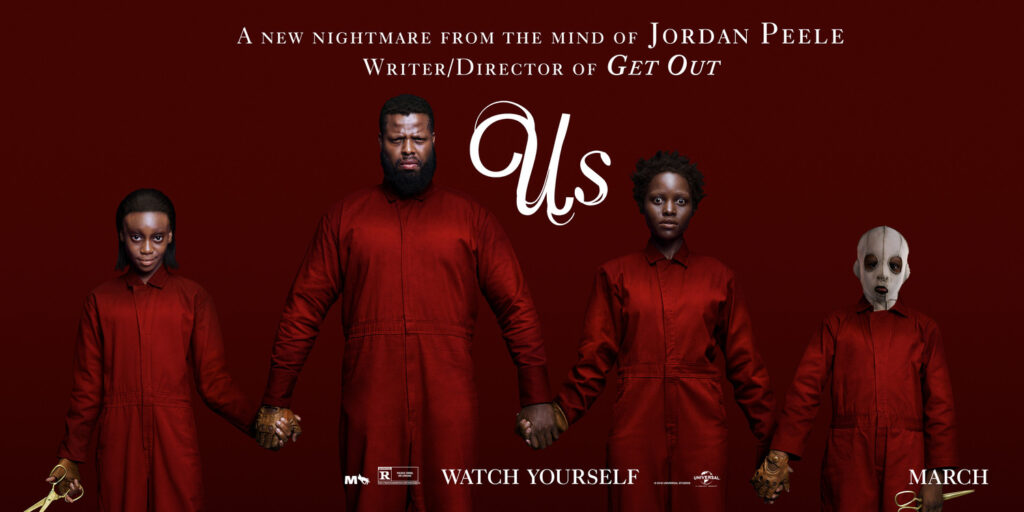
Us would have been the perfect model for setting the tone around children disappearing at night. It shares a similar premise, characters behaving abnormally and becoming destructive. But unlike Weapons, the supernatural twist in Us was explained and justified, which allowed fans to comprehend the world-building. Besides, instead of scattering its suspense, Us lets the horror breathe, pulling the audience into the characters’ fear. On the other hand, Weapons crammed all of its horror elements into the final minutes, losing much of its impact.
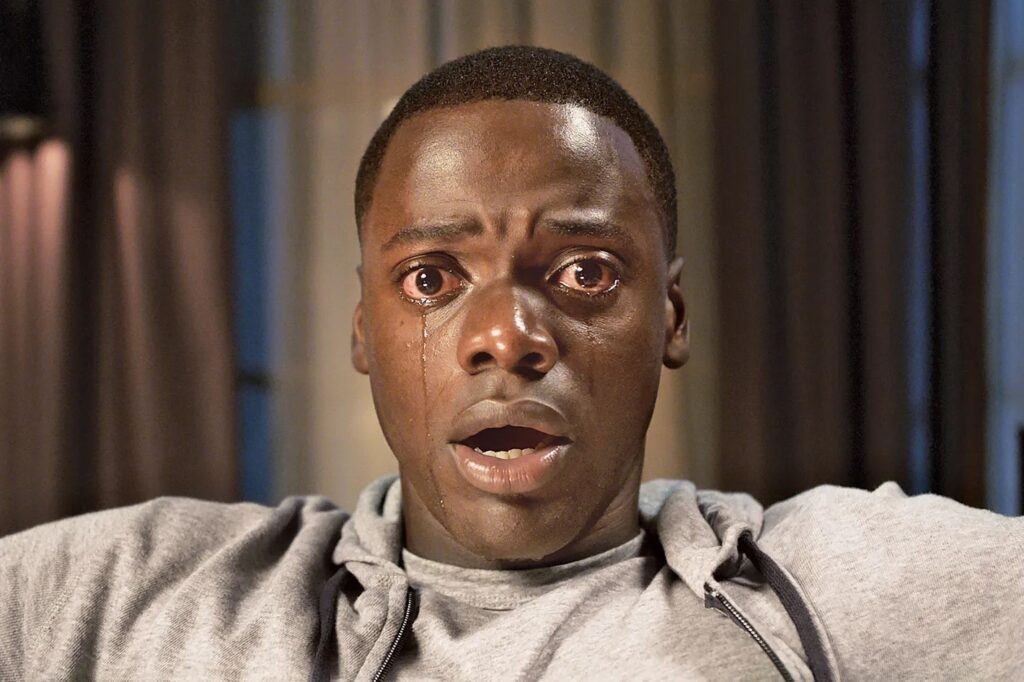
Get Out also blended horror and comedy, but with much greater finesse. Focusing on a single character and the main character’s emotional conflict, the film built tension in an intimate and real way. Its horror elements were explained smoothly and unhurriedly, leading to an ending that immersed audiences and left them cheering for the protagonist to “get out.” This is a clear example of how psychological horror can still carry humour without undermining the fear.
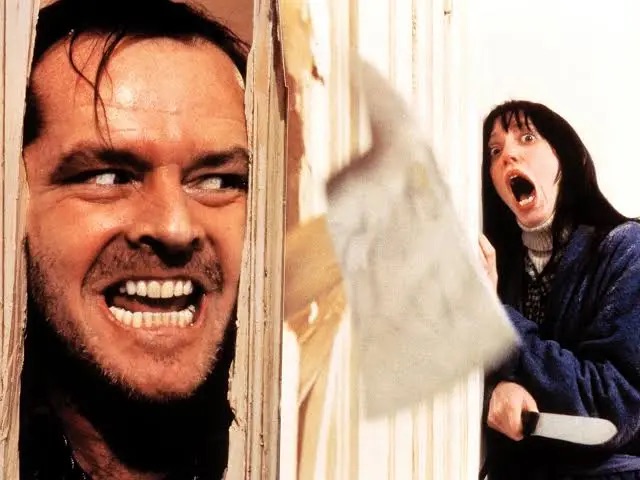
Finally, The Shining introduced multiple entities not just for shock value but also to create lasting chills and psychological confusion. Every unsettling moment contributed meaningfully to the buildup, deepening the audience’s immersion in the main character’s unravelling.
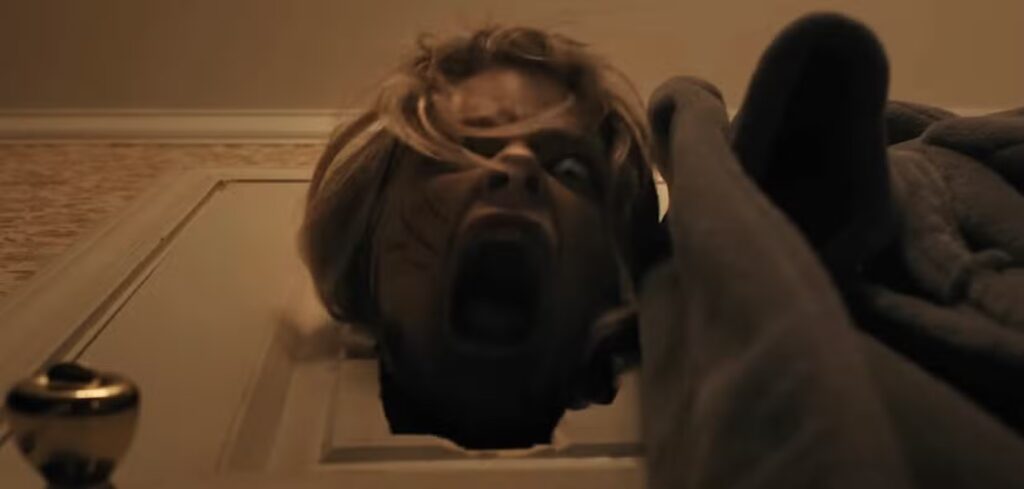
If there’s a lesson to be learned here, it’s that Weapons could have looked more closely at how these iconic psychological horrors succeeded. Comedy and psychological tension can work together, but only when used carefully with purpose. If horror is to remain effective, comedy must serve the fear — not strip it away. Weapons show us what happens when that balance is lost.
